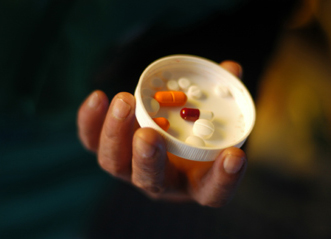Health experts ask for 'cautious' approach to new promising TB drug
 Washington, July 11 : Health experts have revealed that the new drug-resistant tuberculosis shows promise, however it should be approached with caution.
Washington, July 11 : Health experts have revealed that the new drug-resistant tuberculosis shows promise, however it should be approached with caution.
The Community Research Advisors Group (CRAG) argue that research into bedaquiline - a new drug, fast tracked for multidrug-resistant tuberculosis (MDR-TB) - should proceed cautiously in people with drug-sensitive tuberculosis and they urged researchers to balance the goal of shortening treatment for drug-sensitive TB with patient safety.
Current treatments for drug-resistant tuberculosis show improved outcomes when continued for 18 to 24 months, and even then cure rates range from 11 percent to 79 percent depending on the extent of resistance. This presents a huge burden both on health care facilities and on patients to stick to a strict, toxic, and lengthy regimen, often in settings where available resources and cost make long drug treatments difficult to implement.
The authors pointed out that the drug presents several safety concerns that should be addressed before testing the drug in people with drug-sensitive TB, who already have a very effective treatment option and as such face different risk-benefit considerations than people with drug-resistant TB.
In one phase 2 trial, a significantly higher number of participants receiving bedaquiline died than those receiving placebo. The majority of these deaths had no common cause and occurred months after the trial ended, but due to the long half-life of the drug, adverse effects from the drug cannot be ruled out. Close follow-up monitoring is needed due to an increased rate of liver and cardiac toxicity observed in patients receiving bedaquiline.
According to CRAG co-chair Dorothy Namutamba, bedaquiline shows a lot of promise for improving treatment in the future. However, the drug also shows potentially serious adverse effects ranging from liver toxicity, disruption of the heart's electrical rhythm, and even death.
As trials of this novel drug are considered in patients with drug-sensitive tuberculosis, researchers need to carefully balance the potential benefit of the new drug while making sure to always place the safety of the trial participants at the forefront of any considerations.
The study was published in the Lancet. (ANI)